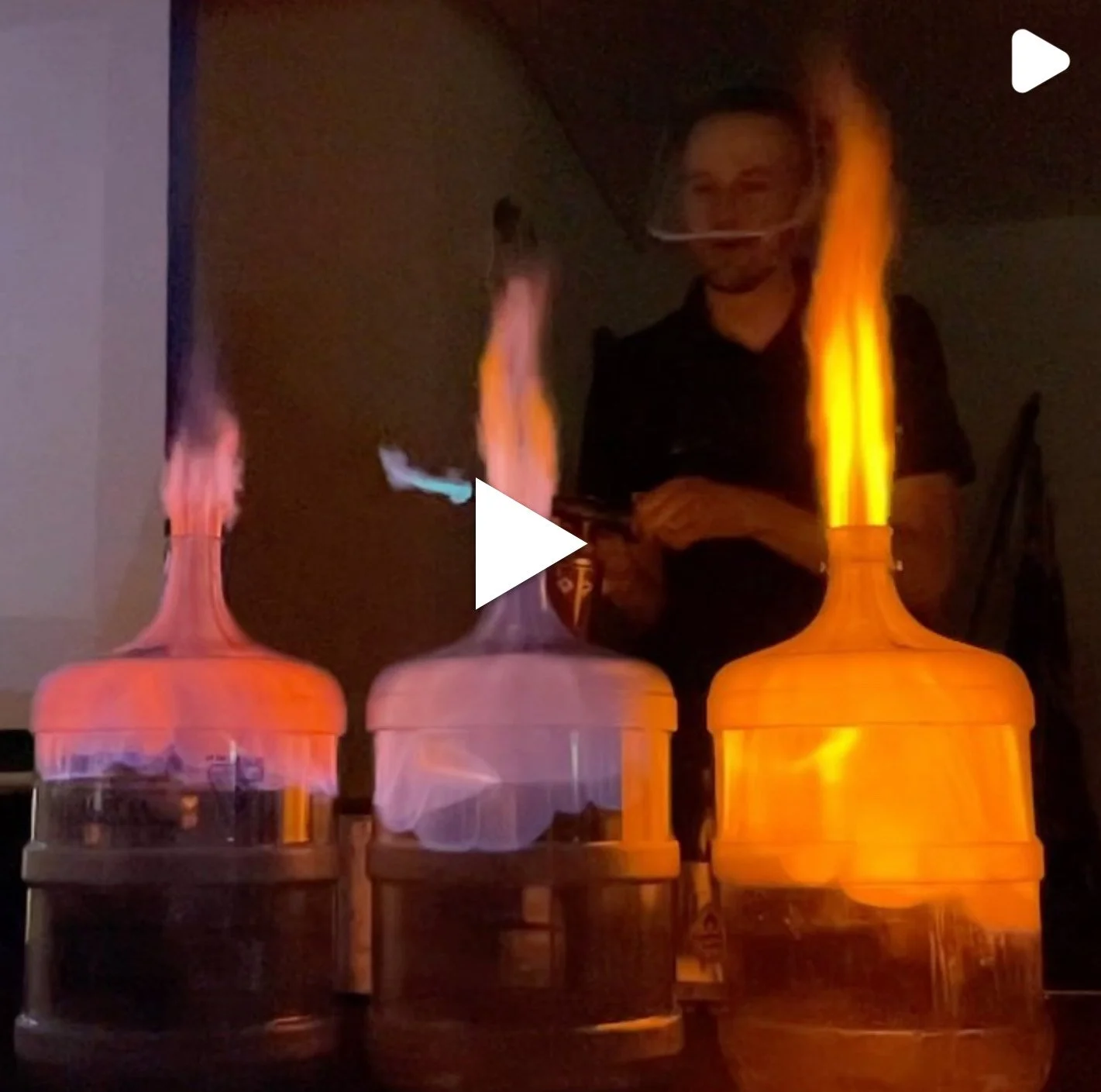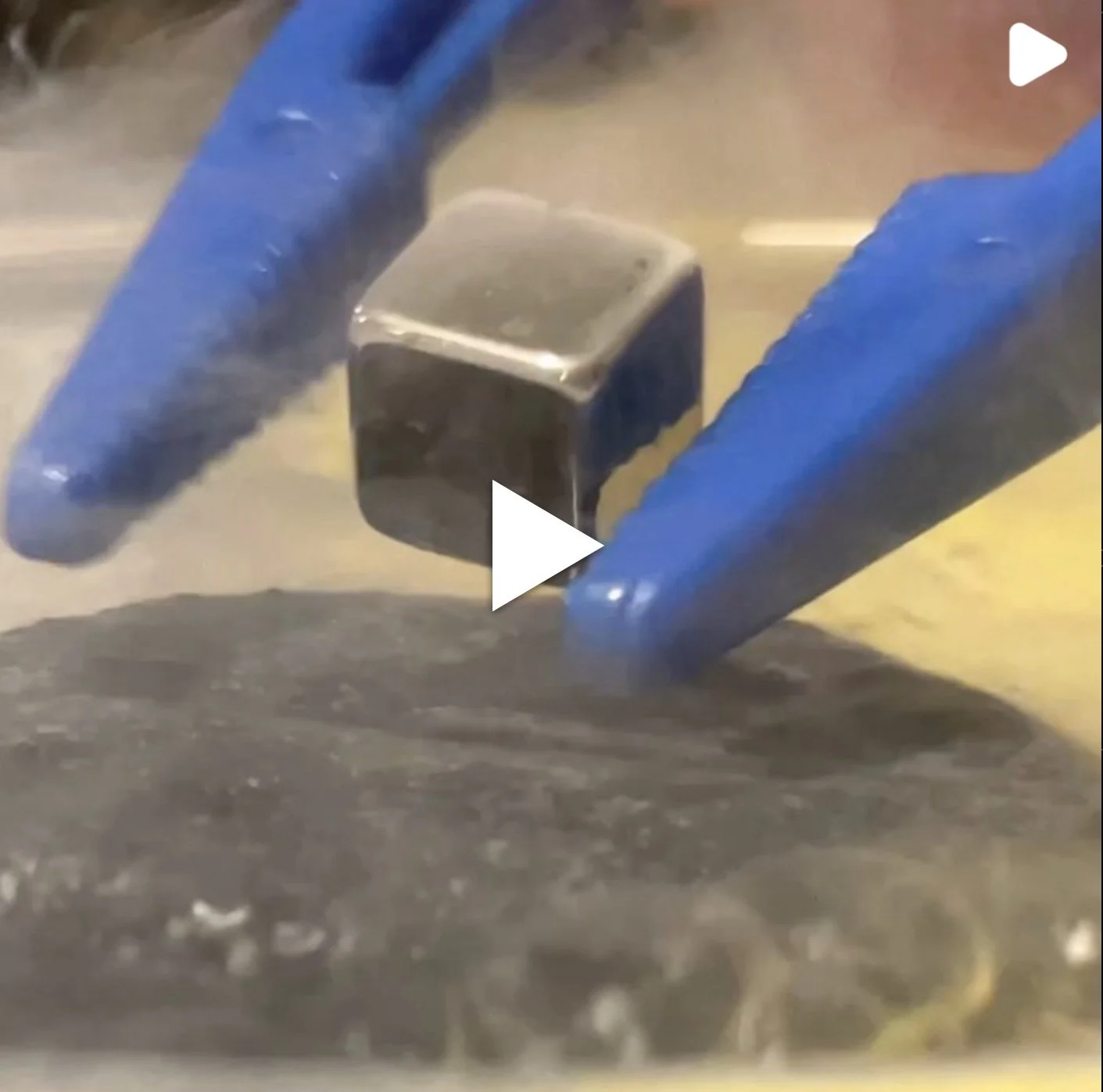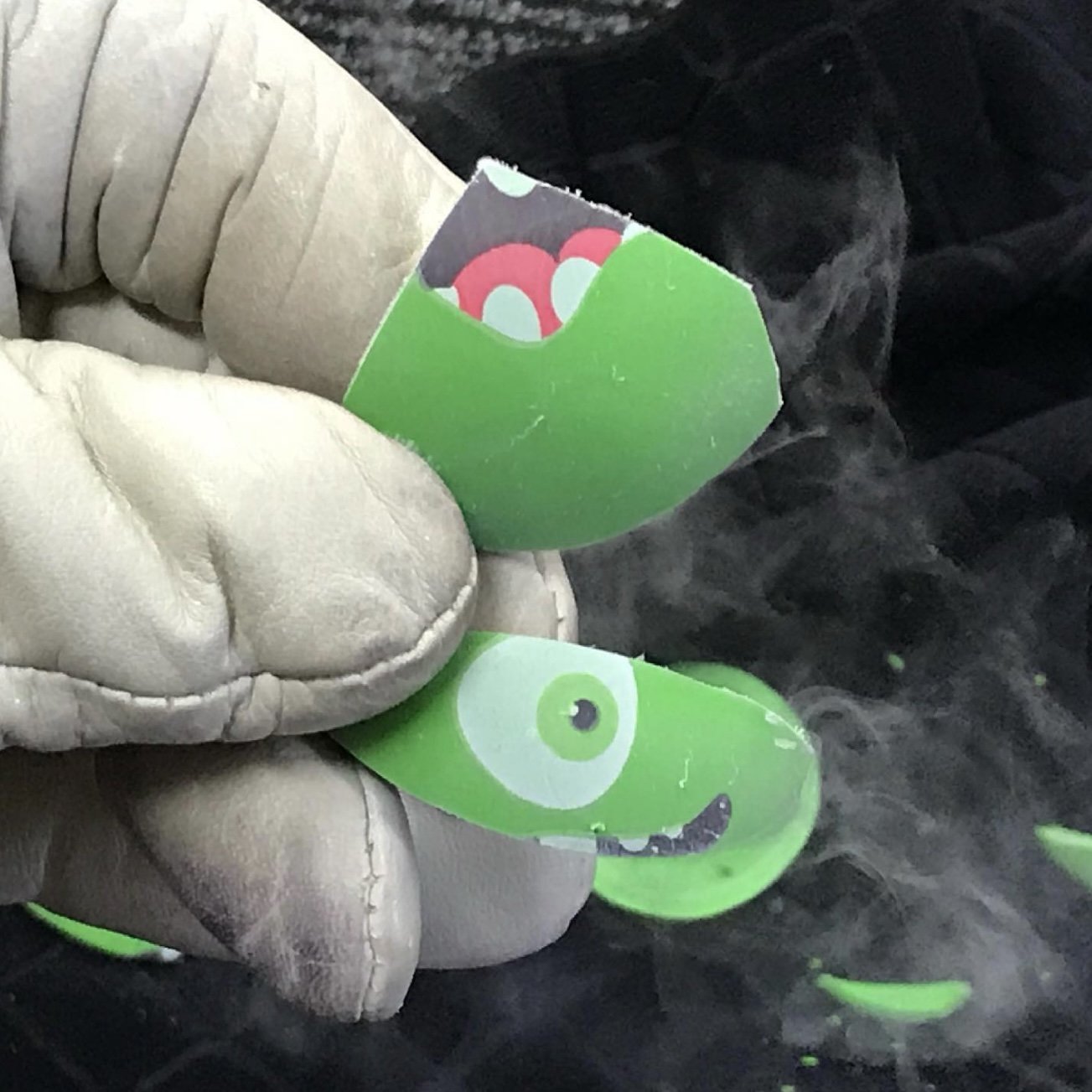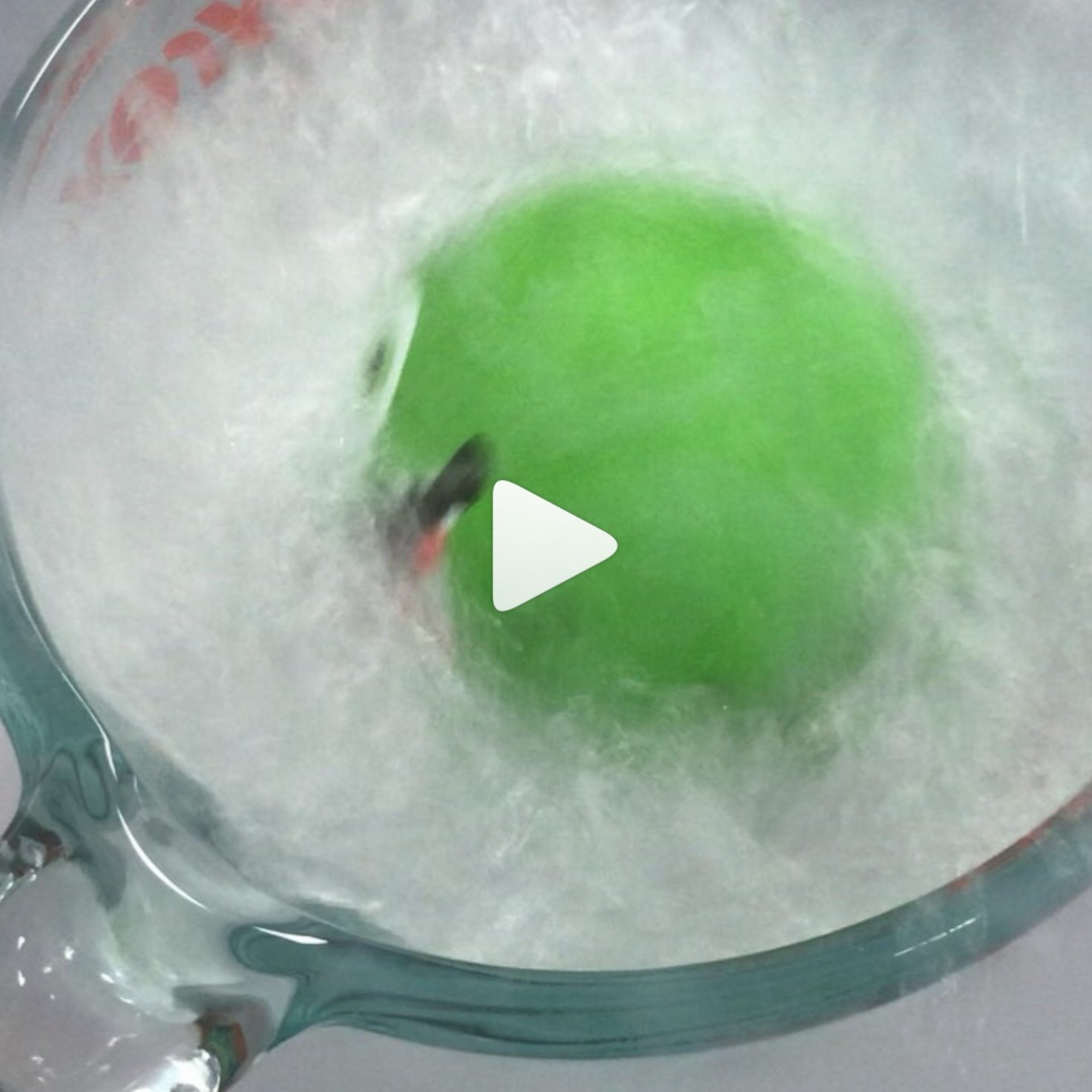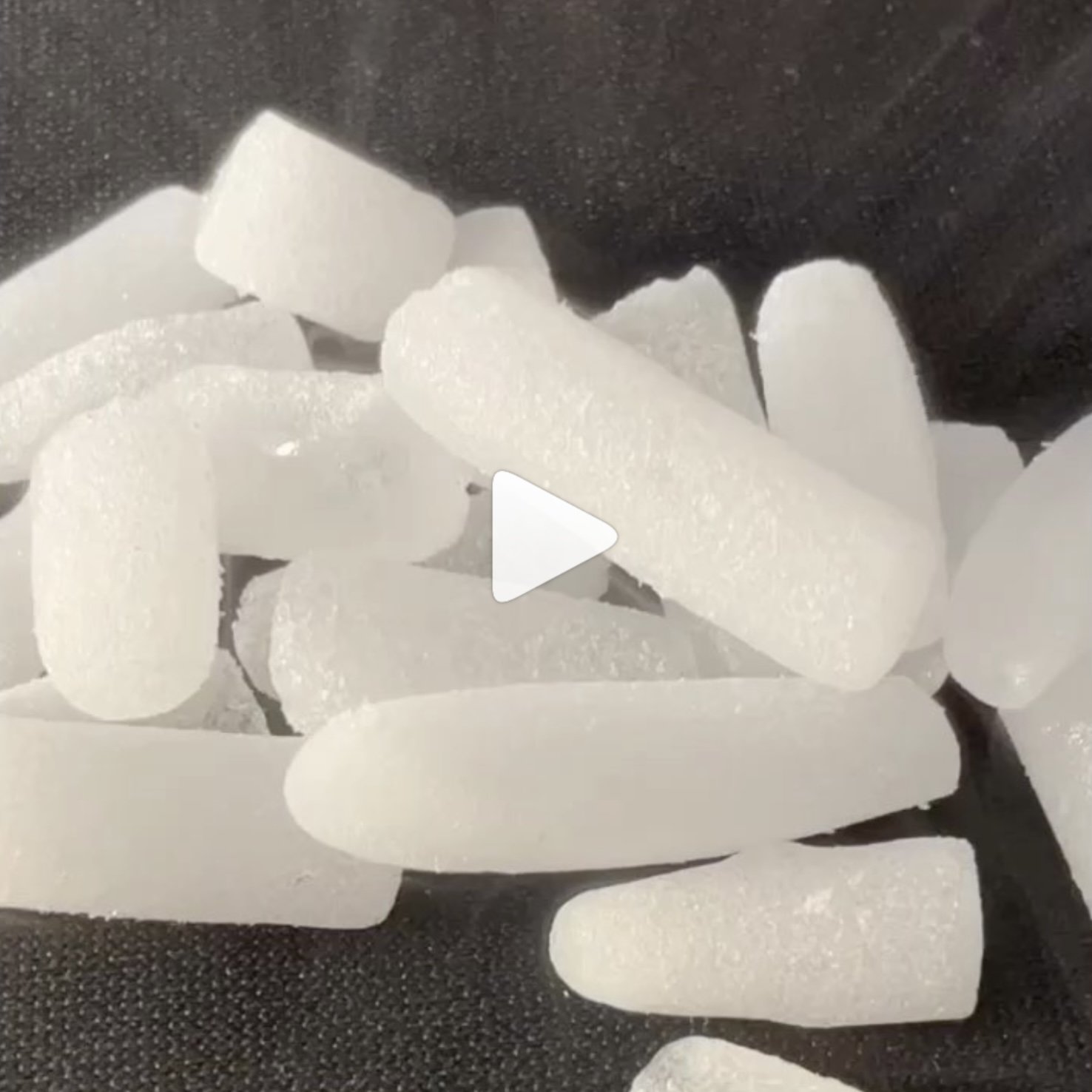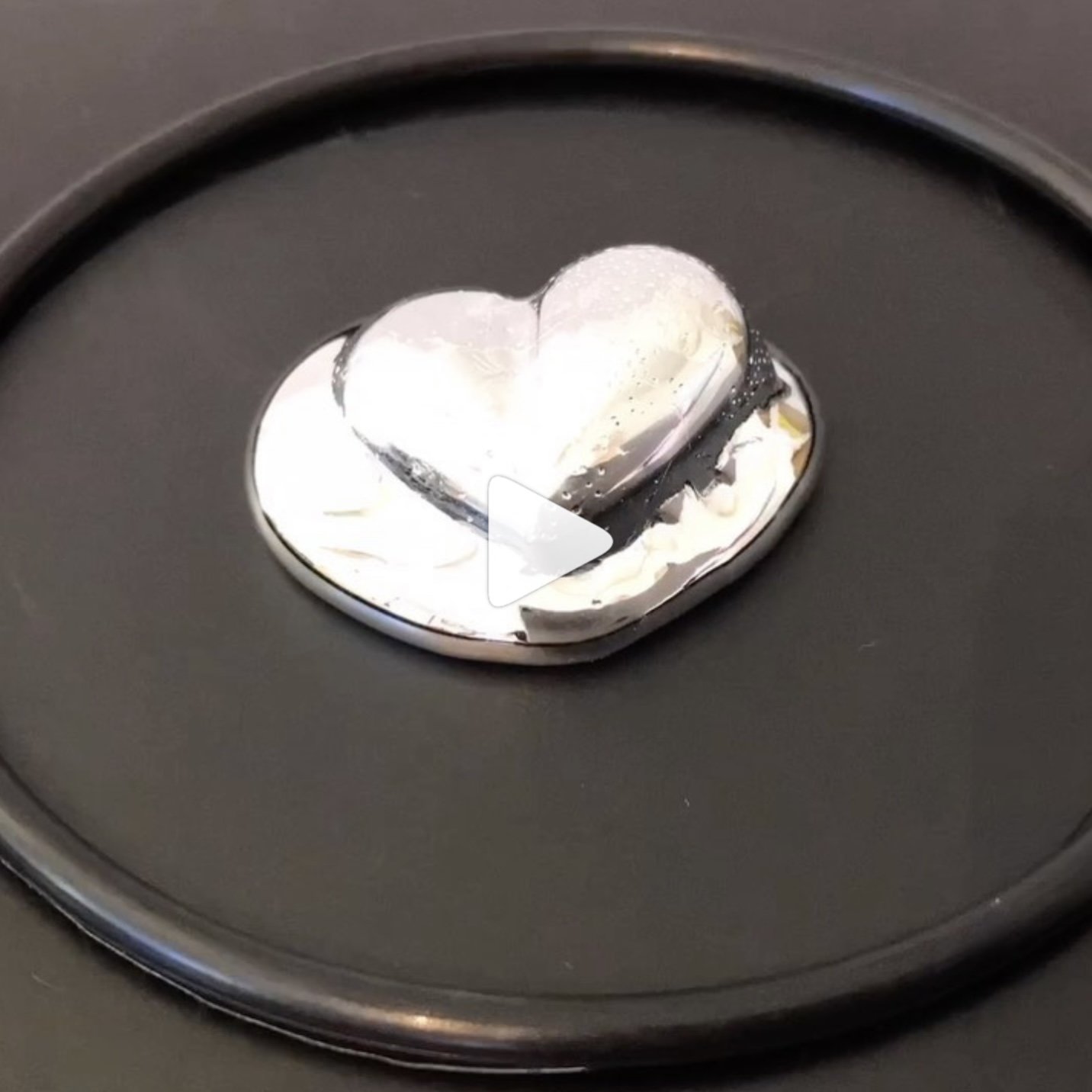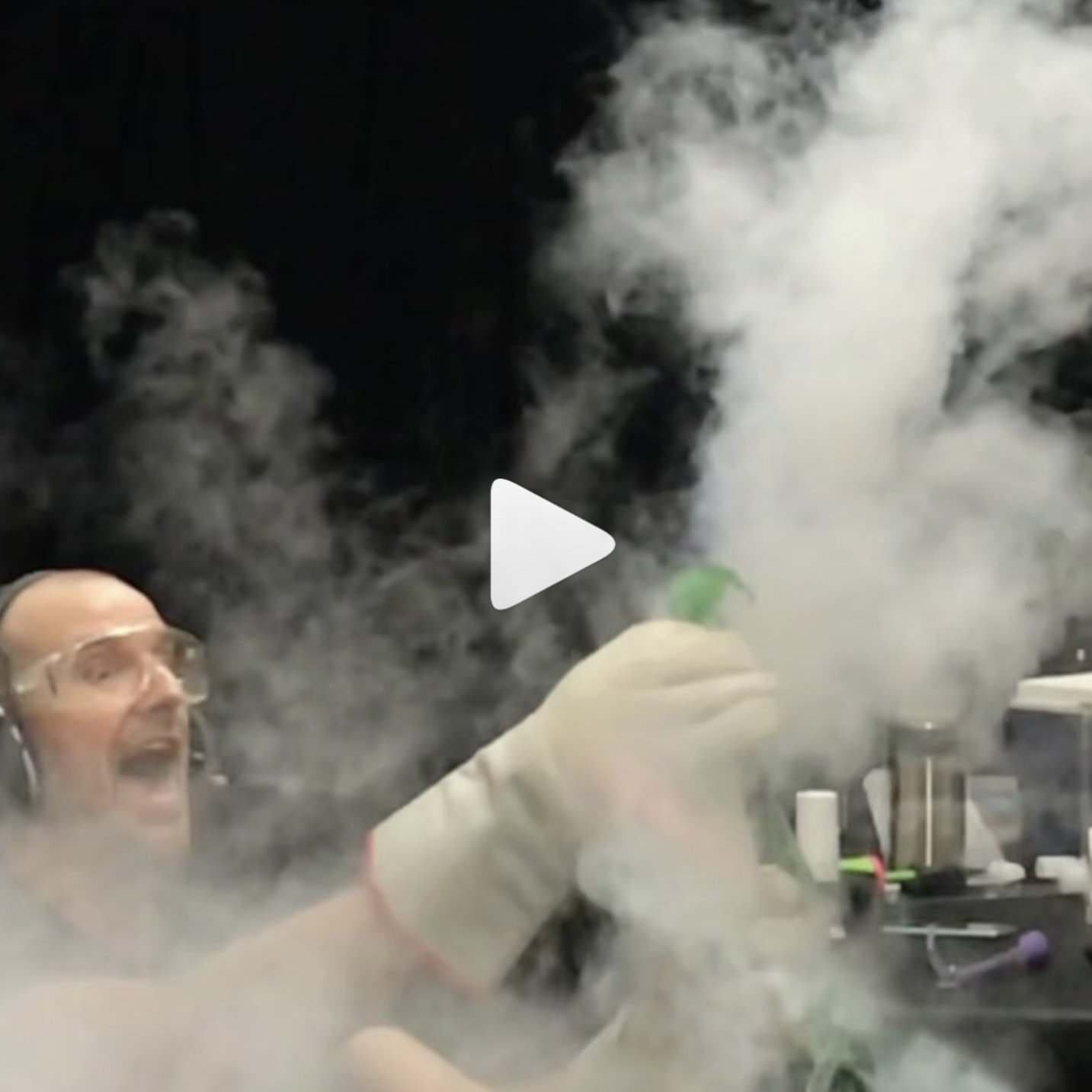The Matter & Energy Show
Secondary School Incursion (7-10)
A spectacular showcase of exciting and energetic demonstrations about states of matter, energy, kinetic theory and technology. Your students will be amazed by sublimating dry ice, boiling-cold liquid nitrogen, flaming fireballs, wireless technology and even an explosion or two. Designed to address the Australian Curriculum and suitable for years 7-10, the Matter & Energy show is perfect to inspire interest and enthusiasm for science among your students.
-
Mysterious melting with conductors & insulators
Sublimating dry ice
Pressure powered rockets
The sublimation game - students race to inflate a balloon with dry ice
The human plasma TV - students hold colourful tubes of glowing plasma in their hands
Internal combustion energy transformation
Fireball - releasing chemical potential energy
Coloured flames
Liquid gallium metal casting
Testing materials under extreme temperatures
Hero's engine - liquid nitrogen powered engine
Exploding a balloon with liquid nitrogen
Superconductor levitation - an object floats before your eyes
*Demonstrations performed will be customised to suit the audience and may depend on venue or time constraints
-
$705 per show (incl. GST)
-
Sydney, Central Coast & Newcastle
-
Up to 150 students per show
-
Years 7-10
-
Set up: 30-60 minutes
Show: 60 minutes
Pack up: 30-60 minutes
-
Indoor venue (hall is ideal) with power outlet & space for students to sit
Access to sink with running water before each show
Accessible off-street parking for the duration of our visit, allowing for a 1-hour set up and pack up time
(optional) 2x trestle tables, if available
(optional) Access to venue projector, if available
-
SCIENCE UNDERSTANDING
Year 7
Mixtures, including solutions, contain a combination of pure substances that can be separated using a range of techniques (ACSSU113)
Change to an object’s motion is caused by unbalanced forces acting on the object (ACSSU117)
Year 8:
The properties of the different states of matter can be explained in terms of the motion and arrangement of particles (ACSSU151)
Differences between elements, compounds and mixtures can be described at a particle level (ACSSU152)
Energy appears in different forms including movement (kinetic energy), heat and potential energy, and causes change within systems (ACSSU155)
Year 9:
All matter is made of atoms which are composed of protons, neutrons and electrons; natural radioactivity arises from the decay of nuclei in atoms (ACSSU177)
Chemical reactions, including combustion and the reactions of acids, are important in both non-living and living systems and involve energy transfer (ACSSU179)
Energy transfer through different mediums can be explained using wave and particle models (ACSSU182)
Year 10:
Energy conservation in a system can be explained by describing energy transfers and transformations (ACSSU190)
The motion of objects can be described and predicted using the laws of physics (ACSSU229)
SCIENCE AS A HUMAN ENDEAVOUR
Year 7:
Scientific knowledge changes as new evidencebecomes available, and some scientific discoveries have significantly changed people’s understanding of the world (ACSHE119)
Science and technology contribute to finding solutions to a range of contemporary issues; these solutions may impact on other areas of society and involve ethical considerations (ACSHE120)
Science understanding influences the development of practices in areas of human activity such as industry, agriculture and marine and terrestrial resource management (ACSHE121)
People use understanding and skills from across the disciplines of science in their occupations (ACSHE224)
Year 8:
Scientific knowledge changes as new evidencebecomes available, and some scientific discoveries have significantly changed people’s understanding of the world (ACSHE134)
Science and technology contribute to finding solutions to a range of contemporary issues; these solutions may impact on other areas of society and involve ethical considerations (ACSHE135)
Science understanding influences the development of practices in areas of human activity such as industry, agriculture and marine and terrestrial resource management (ACSHE136)
People use understanding and skills from across the disciplines of science in their occupations (ACSHE227)
Year 9:
Scientific understanding, including models and theories, are contestable and are refined over time through a process of review by the scientific community (ACSHE157)
Advances in scientific understanding often rely on developments in technology and technological advances are often linked to scientific discoveries (ACSHE158)
Advances in science and emerging sciences and technologies can significantly affect people’s lives, including generating new career opportunities (ACSHE161)
Year 10:
Scientific understanding, including models and theories, are contestable and are refined over time through a process of review by the scientific community (ACSHE191)
Advances in scientific understanding often rely on developments in technology and technological advances are often linked to scientific discoveries (ACSHE192)
Advances in science and emerging sciences and technologies can significantly affect people’s lives, including generating new career opportunities (ACSHE195)
SCIENCE INQUIRY SKILLS
Year 7:
Identify questions and problems that can be investigated scientifically and make predictions based on scientific knowledge (ACSIS124)
In fair tests, measure and control variables (ACSIS126)
Use scientific understanding to identify relationships and draw conclusions (ACSIS130)
Reflect on the method used to investigate a question or solve a problem, including evaluating the quality of the data collected, and identify improvements to the method (ACSIS131)
Use scientific knowledge and findings from investigations to evaluate claims (ACSIS132)
Year 8:
Identify questions and problems that can be investigated scientifically and make predictions based on scientific knowledge (ACSIS139)
In fair tests, measure and control variables (ACSIS141)
Use scientific understanding to identify relationships and draw conclusions (ACSIS145)
Reflect on the method used to investigate a question or solve a problem, including evaluating the quality of the data collected, and identify improvements to the method (ACSIS146)
Use scientific knowledge and findings from investigations to evaluate claims (ACSIS234)
Year 9:
Formulate questions or hypotheses that can be investigated scientifically (ACSIS164)
Analyse patterns and trends in data, including describing relationships between variables and identifying inconsistencies (ACSIS169)
Use knowledge of scientific concepts to draw conclusions that are consistent with evidence (ACSIS170)
Evaluate conclusions, including identifying sources of uncertainty and possible alternative explanations, and describe specific ways to improve the quality of the data (ACSIS171)
Year 10:
Formulate questions or hypotheses that can be investigated scientifically (ACSIS198)
Analyse patterns and trends in data, including describing relationships between variables and identifying inconsistencies (ACSIS203)
Use knowledge of scientific concepts to draw conclusions that are consistent with evidence (ACSIS204)
Evaluate conclusions, including identifying sources of uncertainty and possible alternative explanations, and describe specific ways to improve the quality of the data (ACSIS205)
Photos:
Reviews:
FROM FACEBOOK:
①
Book us
②
Book a space
in your school
③
We do the rest!
We come to you - no buses ✓
Fully insured & risk assessed ✓
Teachers only required for supervision ✓
Aligned with the Australian Curriculum standards ✓
“Understanding is joyous”




